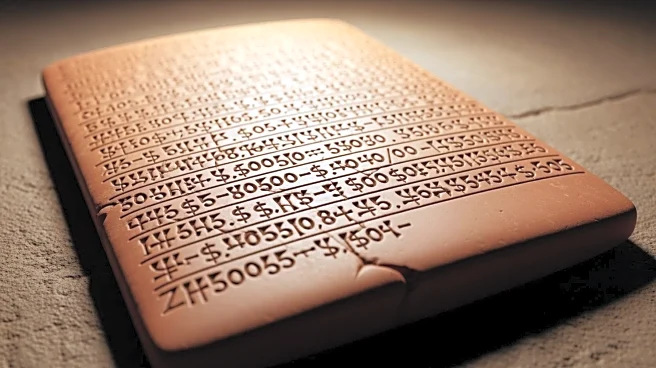What's Happening?
Archaeologists in Jerusalem have discovered a fragment of Assyrian cuneiform from the First Temple period, indicating possible tax disputes between the Assyrian Empire and the Kingdom of Judah. The fragment,
found near the Western Wall, dates back to the eighth century B.C.E. and includes the word 'delay,' suggesting a late tax payment. This discovery marks the first direct evidence of correspondence between Assyria and Judah, providing insights into the political dynamics of the era.
Why It's Important?
The find is significant as it sheds light on the administrative and political relationships between the Assyrian Empire and its vassal states, including Judah. It suggests potential friction over tax payments, which could have broader implications for understanding the economic and political pressures faced by Judah. This discovery contributes to the historical narrative of the region, offering tangible evidence of the interactions between ancient empires and their territories.
What's Next?
Further analysis of the fragment's composition is underway to confirm its origin, potentially linking it to Assyrian administrative centers like Nineveh. This could provide more precise information about the Assyrian presence and influence in Jerusalem. The discovery may prompt additional archaeological investigations in the area to uncover more artifacts that could further illuminate the historical context of Assyrian-Judah relations.
Beyond the Headlines
The discovery raises questions about the nature of Assyrian control over Judah and the extent of its influence. It highlights the complexities of ancient imperial governance and the challenges faced by vassal states. The find also underscores the importance of archaeological research in reconstructing historical narratives and understanding the socio-political dynamics of ancient civilizations.









